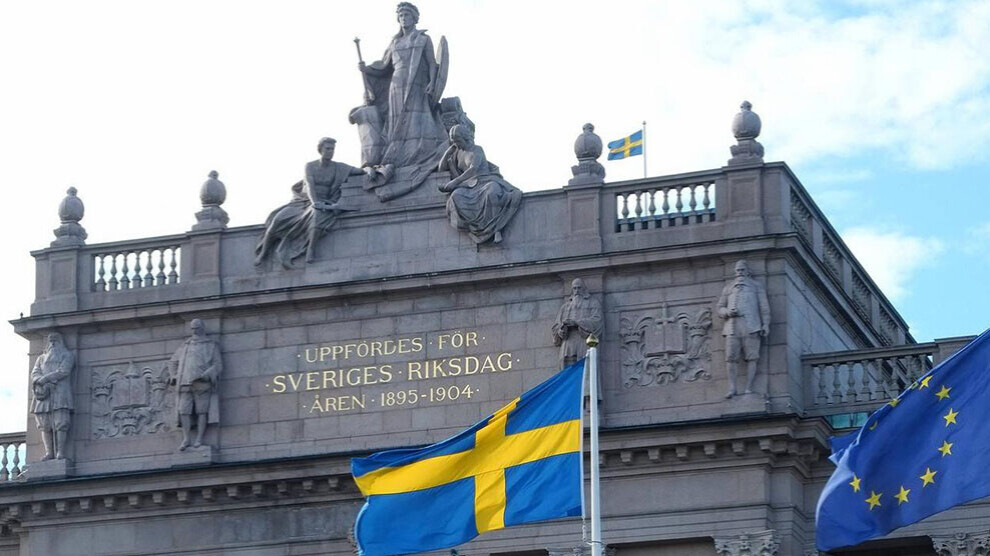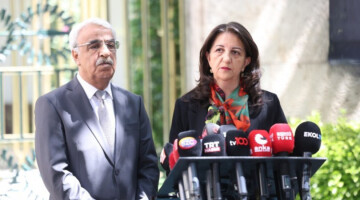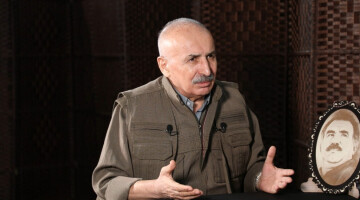June 10, 2020 was an emotional day for Sweden. More than 34 years after the murder of Swedish Prime Minister Olof Palme, prosecutor Krister Petersson announced on that day that he had identified the alleged perpetrator. However, he said that since the right-wing extremist named Stig Engström had been dead for a long time, charges could no longer be brought. But the investigation into the murder has opened deep wounds.
On the evening of February 28, 1986, shortly before midnight, Olof Palme and his wife were on their way back from a movie theater in Stockholm when he was shot in the back in the street. Although Engström was suspected of being the perpetrator, he was relatively quickly dropped from the investigation because the police at the time focused on the so-called PKK trail. This began a wave of persecution against Kurds throughout Europe, which ultimately also laid the foundation for the PKK ban. And although the Palme investigation has been concluded with the identification of the perpetrator for more than a year and a half, Sweden has still not exercised any self-criticism for the sustained criminalization of Kurdish society in connection with the murder.
Government places Kurdish refugees under general suspicion
On the contrary, instead of initiating a turning point, Sweden intensified repression. Especially against asylum-seeking Kurds with Turkish citizenship. The application of Resul Özdemir was also rejected and he was deported by private plane last April during the pandemic. The activist, now 24, had taken part in the resistance against the Turkish military siege in Cizre in 2015. For five months he was illegally held in extradition custody in Stockholm, where he was tortured with sleep deprivation. The Turkish intelligence service MIT in Istanbul continued the ordeal with waterboarding and electric shocks. Neither Özdemir's family nor his legal counsel had been informed of the deportation. It took place at a time when there were no flights between Turkey and Sweden due to the pandemic - and despite demands from 40 associations and initiatives to grant him asylum. This indicates cooperation between MIT and the Swedish secret service Säpo.
Deportation because of political commitment
Now Sweden's authorities also want to get rid of Kurdish woman Zozan Büyük. In her case, there is no threat of torture in Turkey, as the woman is a Belgian citizen. Nevertheless, she is meant to be brutally torn from her previous life and separated from her husband and their two children - at the instigation of the Säpo. According to the Swedish intelligence service, Zozan Büyük represents a security risk for the country. The reason: she is politically engaged, especially for the HDP.
Protests from politics and media
But protests against the planned deportation are stirring. Not only the Kurdish community, but also politicians and the media backed Zozan Büyük, and the largest Swedish newspaper, Aftonbladet, published three reports criticizing Sapö for running the deportation. The woman's family and the Kurdish association at her home in Örebro also organized a series of protests.
Topic in parliament
The name Zozan Büyük is also a topic in the Swedish parliament. Linda Westerlund Snecker, the Left Party's spokesperson on legal policy, recently put the case on the agenda with a parliamentary question. Snecker pointed out that the cooperation between MIT and Säpo raises questions. The national intelligence service in Sweden, he said, was focusing its investigations on people who used state-guaranteed rights of freedom and equality in cooperation with Turkish colleagues. Snecker also spoke of repression against political refugees with Turkish citizenship and asked Justice and Migration Minister Morgan Johansson about consequences of the Säpo's risk assessment according to the mentality of authoritarian regimes like Turkey.
Government defends deportations
In response to the question, Johansson said that the Säpo only followed the laws on the control of foreigners and had the right to determine whether these people posed a threat. In such a situation, he said, the police could intervene with the immigration authorities and advocate for deportation. It would also be allowed to conduct detailed investigations into those who might pose a threat to Sweden's security, based on national and international information. In this way, Johansson is in effect hinting at cooperation with Turkish intelligence services.
MIT cooperation against Kurds admitted
Linda Westerlund Snecker told ANF that she was surprised by the minister's response. She said she could understand that the government did not want to reveal details about the Säpo. Nevertheless, refugees should not be deported and victimized. In general, she said, it is more than difficult to understand interrogation methods and especially the questions that are asked of supposedly dangerous asylum seekers.
Asked about the increasing repression against Kurds, although the Palme investigations have produced a completely different result, Snecker replied: "I don't have an answer to that either. My group and I have dealt intensively with the questions of what information the intelligence service receives from which countries, why certain people are classified as security risks and deported to other countries." She said she recently spoke with the Säpo. "She is well aware of our criticism."
"Requesting information on deportations"
Snecker also sits on the Parliamentary Oversight Committee, which is supposed to monitor the work of the intelligence agency. "We're not going to look at the specific situations of individuals here, but we will request information about such deportations. These issues are very complex and important. The Swedish Security Police should be more objective in their assessments, and all citizens have the right to know about their work."















